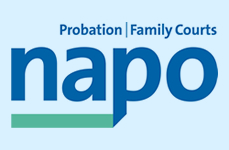The overwhelming response from Napo members attending at the many Branch meetings I have had the pleasure of visiting, was to welcome the Government rethink on Probation but where they also raised two key questions.
The first being: ‘what will be the operative date for CRC Staff on which they will be deemed to be in scope for transfer along with their work to the NPS? The second: ‘will there be harmonisation of pay, terms and conditions for all staff across Probation before the end of the current CRC contracts?
In terms of the effective operational date, I expect to be able to issue some definitive news once we have concluded our engagement over the course of the next two weeks with senior HMPPS and MoJ leads. This is obviously a critical issue and the current uncertainty is not exactly being helped by some quite irresponsible speculation by a few CRC owners suggesting that they have some traction over when (and which) staff will be in scope. As current employers they have an obvious duty to inform staff of where they stand and impart relevant information, but beyond that we have made it clear to the MoJ that negotiations over the new staff transfer won’t include them.
Its time to join in common cause
If CRC owners, especially those with an eye on possible future contracts in Programmes and Interventions (should they ever emerge) want to do something useful, then they ought to join the campaign to harmonise the pay and terms and conditions of their staff to match those existing in the NPS as soon as possible.
For once it is established just how many of their staff are likely to be moving to the NPS, they will face a real problem motivating those who are scheduled to remain; and who may decide that applying for one of the hundreds of NPS vacancies or the option of moving to Agency status is a lot better than remaining with an employer that won’t exist in its present form beyond April 2021.
Let’s be clear, the task of repairing Probation from the disasters that Grayling visited upon it is mammoth in size and detail. What we urgently need is a stabilised ‘whole system’ workforce where ‘would be’ future purchasers of new contracts will know exactly what they are bidding for in terms of the potential available workforce and how much it will cost them in pay and pension contributions.
Unless the motivation is there to retain a mix of skillsets across the whole of the service, (and that absolutely includes the numbers of staff that will be required to deliver Interventions and Programmes,) then by the time that CRC contracts come to an end there may be insufficient resources left to deliver anything.
As far as Napo is concerned this work is just as vital as Offender Management supervision and we don't intend to leave our members in the CRC’s behind on inferior pay terms and conditions.
Some weeks back I made an offer to CRC owners that Napo stands ready to work together with them to try and achieve this imperative for the good of their employees and the future of the service.
You know where to find us.
Wales
Meanwhile, our team of Napo Cymru reps and Link Official Tania Bassett are engaged in regular contact with the NPS and SEETEC management over the technicalities of the scheduled transfer of Offender Management work to NPS Wales by December.
We will be issuing more news to members about the progress here at the earliest opportunity.

 Forums and Events would like to invite you to attend our upcoming Reducing Reoffending and Changing Public Perception CPD conference.
Forums and Events would like to invite you to attend our upcoming Reducing Reoffending and Changing Public Perception CPD conference. London, Saturday, 2 November 2019, 10:00am
London, Saturday, 2 November 2019, 10:00am With the UK getting a new Prime Minister could mean only one thing. A cabinet reshuffle. David Gauke set out very clearly some weeks ago that he intended to resign if Boris Johnson won as he has very different views on Brexit. So with the announcement of Boris Johnson's success it means that we faced our 6th Justice Secretary in 6 years.
With the UK getting a new Prime Minister could mean only one thing. A cabinet reshuffle. David Gauke set out very clearly some weeks ago that he intended to resign if Boris Johnson won as he has very different views on Brexit. So with the announcement of Boris Johnson's success it means that we faced our 6th Justice Secretary in 6 years. Join supporters of the Colombian peace process in central London to show support for the peace process and in protest at the ongoing murders of social activists and FARC former guerrillas in Colombia.
Join supporters of the Colombian peace process in central London to show support for the peace process and in protest at the ongoing murders of social activists and FARC former guerrillas in Colombia.